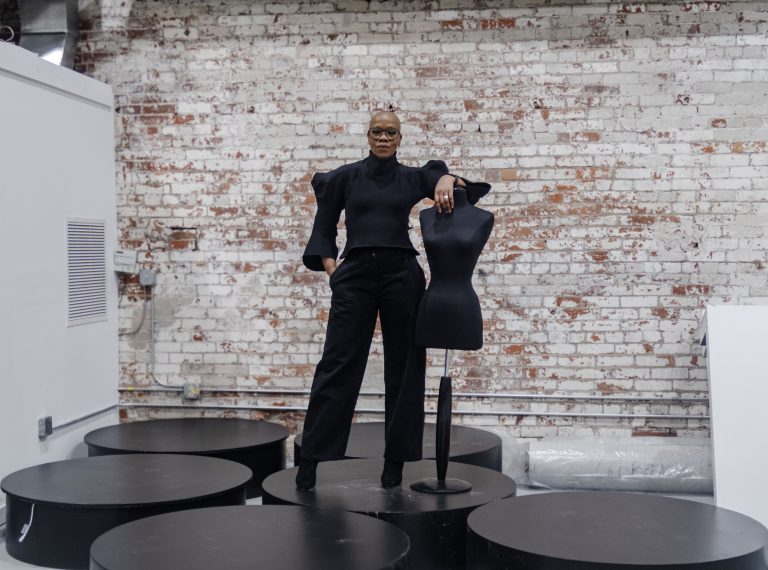With the recent AFRICANISM Gala at Pittsburgh Public Theater, the founder of FashionAFRICANA continues her mission to honor Black creatives and celebrate African culture.
By Ervin Dyer
Demeatria Boccella is a change agent – a stylish entrepreneur who spends much of her creative and artistic life amplifying the beauty of African culture, identity, and ideas.
Born and raised in Hazelwood’s Glen Hazel Court, Boccella is the second daughter of Clarence Gibson, a steelworker, and his wife, Shirley, a homemaker. Early on, she was drawn to acting, fashion, and business. Often, during playtime as a pre-teen, she’d put on theatrical productions of the popular television shows of the day, such as “The Wiz,” “Grease,” and “Fame.” She also dreamed of working downtown in a big building with a corner office. As she studied at Bradford Business School, then Robert Morris University and eventually graduated from Carlow College, she always carried her briefcase and business cards with the tagline, “You’re someone special.”
“I felt so much pain and hurt when I was growing up and didn’t like myself,” she says. “But instead of turning into a bitter person, I have used that experience to help everyone around me to feel beautiful and to feel special.”
Seeing Black professionals and Black models had an impact and helped me begin to see myself and the world differently.”
Demeatria Boccella, founder of FashionAFRICANA
Boccella’s experiences led her to create FashionAFRICANA, a global multi-media and educational platform that explores Black beauty, culture and history through fashion and art. Amidst the recent holiday season, her organization launched its inaugural gala, AFRICANISM, at the Pittsburgh Public Theater. Several hundred attended the red-carpet event, which honored the work and accomplishments of four creatives of African descent: Paul Tazewell, an award-winning costume designer for dance, opera, television and Broadway (“Hamilton”); Charly Palmer, an award-winning Atlanta-based visual artist whose illustrations have been featured in places as disparate as children’s books, the Olympics, and Time magazine’s Black Lives Matter cover; Folake Olowofoyeku, a Nigerian actress with the CBS sitcom “Bob Hearts Abishola”; and Imane Ayissi, a Cameroonian fashion designer based in Paris who was the first Black African designer to have his designs shown on a Paris Haute Couture Week catwalk.
Here, Boccella shares more about her journey. This interview has been edited for clarity and length.
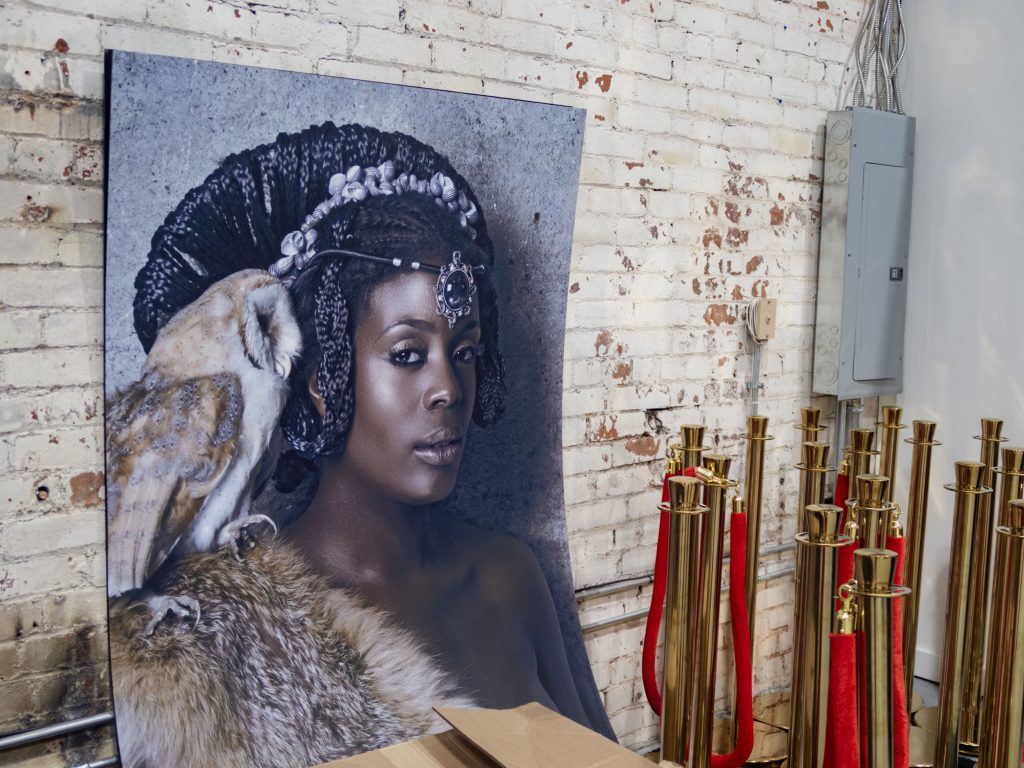
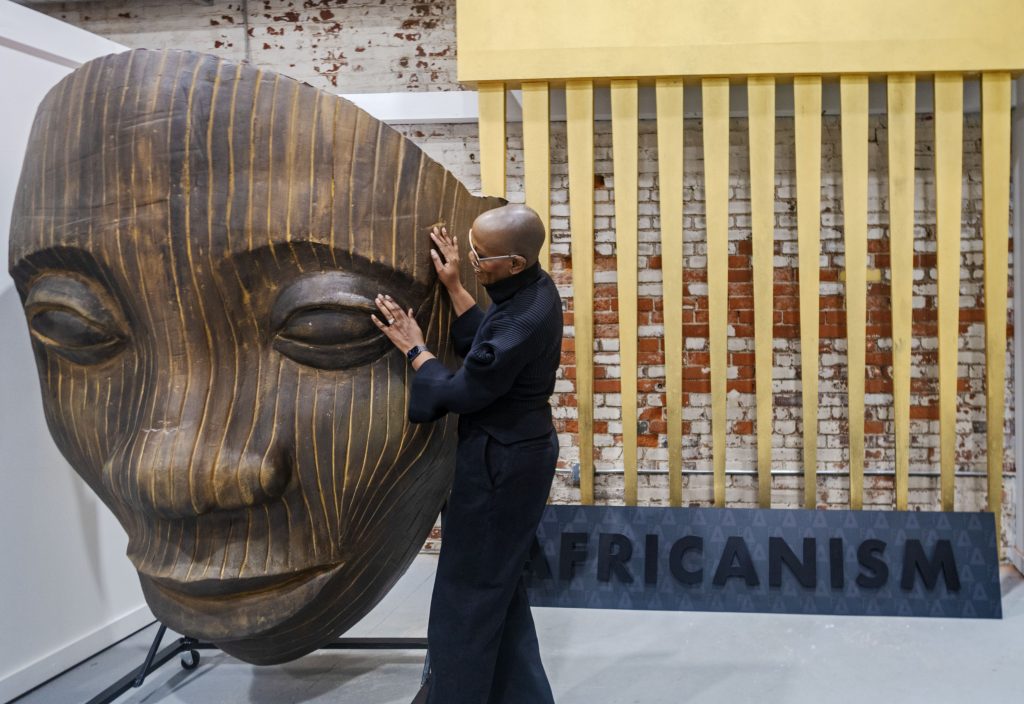
Boccella at her Pittsburgh studio, surrounded by images that reflect her mission, commitment and journey. Photo Credit: Evangeline MA
What are your earliest memories of what you considered to be beautiful, growing up in Pittsburgh and Hazelwood?
Oh, probably what I saw in the magazines at that time. And that was the European standard, which had a tremendous impact on me because I didn’t see anyone who looked like me or see any people of African descent who were considered beautiful on the cover of the fashion magazines. And that was detrimental to someone who always had an interest in fashion and beauty and who was aspiring to be a model. While the desire of wanting to be a part of the industry never left me, I still did not feel like I was beautiful, and I wanted to change myself. I wanted to lighten my skin. I wanted to get a nose job, like the Jacksons. I just felt that those traits – the closer you were to being white – were what was celebrated as being beautiful.
How did you begin to think differently?
When I was about 11, there was one woman who would come to our neighborhood for prayer meetings, and she was a Buddhist. When I first saw her, I was like, “Oh, my gosh, she’s so beautiful.” She changed my world. I later found out she was a working, Black fashion model in Pittsburgh. Yvette Bobonis Flaxman. She was known as Flossie. Seeing her put a seed in me of what was possible, and that Black was beautiful.
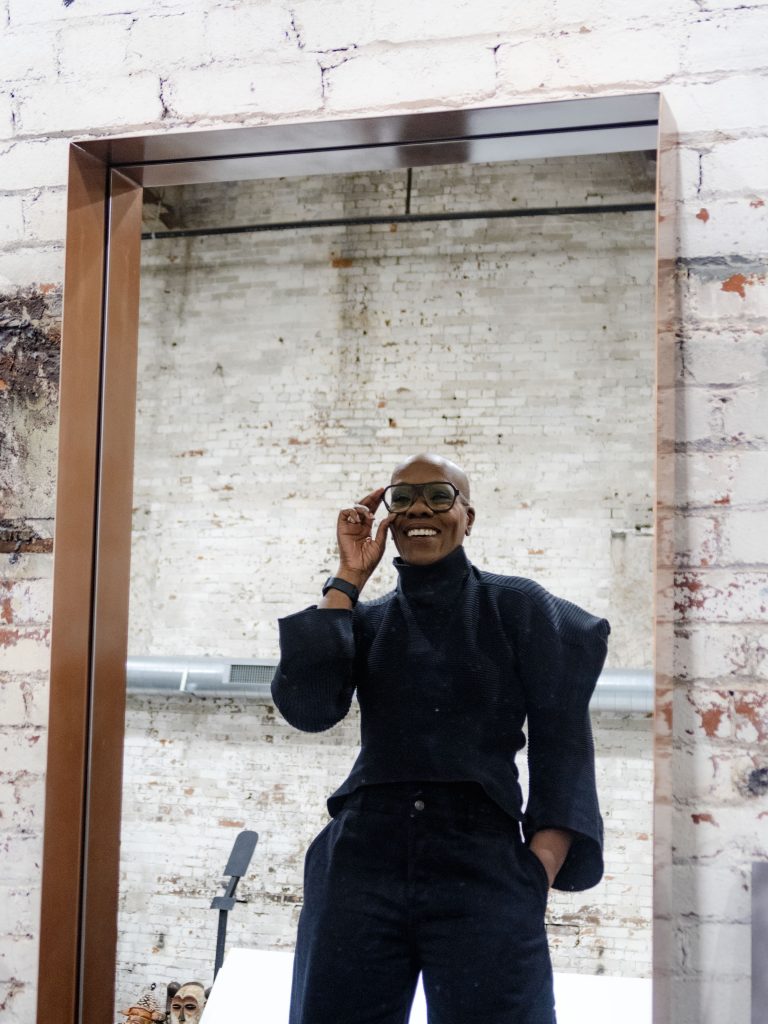
How do you get the idea that you want to be a model?
It started with my fabulous mom, who always looked so beautiful. She was always into wearing nice things. I remember she would take this beautiful white scarf and she [would] wear it across her chest; she would wear it on her head. I always thought her creativity and style was just beautiful. How she dressed was so inspiring to me. That is part of the spark that helped to start it for me.
With AFRICANISM, the gala, one of our goals is to support the work we do to create this bridge between Black creatives on the continent and Black creatives here in America.
Demeatria Boccella, founder of FashionAFRICANA
Any other influences?
I have always had a love of the arts, too. I didn’t go to plays or museums or anything like that growing up, but I just wanted to be a performer. I would make up dances and I would do “Grease” and these other movies with my friends on our steps, and we would produce all these shows. I wanted to dance on TV, just like the show “Fame.” I wanted to go to a performing arts school, dance on the lunch tables, and do all that stuff and live in New York. When “The Wiz” came out, there was someone in my neighborhood who was in the Broadway production. And I just thought that was so amazing. So, these influences had a huge impact on my formative years.
In what ways did your creativity and artistic side begin to show up?
I went to Greater Works Academy in Monroeville from sixth to 12th grade and it showed up in how I presented myself – how I dressed – because I never wanted to be like other people. I took pride in being different and expressing myself through how I looked with my clothing.
FashionAFRICANA’s recent inaugural AFRICANISM gala honored and hosted international luminaries of African fashion and culture: costume designer Paul Tazewell, visual artist Charly Palmer, actress Folake Olowofoyeku, and fashion designer Imane Ayissi. Video Credit: courtesy of FashionAFRICANA
How did the idea of Black, or African beauty begin to show up in your identity and consciousness?
In 1997, when I shaved my head. Until then, I had struggled with a level of insecurity. But I had begun to meet different people and was learning more about my African ancestry thanks to publications such as Essence, Ebony, and Jet. Seeing Black professionals and Black models had an impact and helped me begin to see myself and the world differently. I always took pride in the fact that Essence magazine was founded the year I was born: 1970.
I met Monique Greenwood when she was the lifestyle editor at Essence. She is a Black woman who entered my life and had a tremendous impact. She was so kind and supportive, and we cultivated a relationship. And then she invited me to a cover photo shoot in New York. Seeing the production of the photo shoot – how the stylist worked and the makeup artist, the photographer, and how they set up the clothing – was a lesson that I never forgot. It was a moment that changed my life.
How did it change you?
For one thing, I started volunteering for Fashion Week in New York. I just asked, how do you become a volunteer? And it is not like New York was right around the corner. I got on the bus, and I went to New York City to volunteer several times for Fashion Week – working behind the scenes, learning how to get exposed, and different kinds of information on show production.
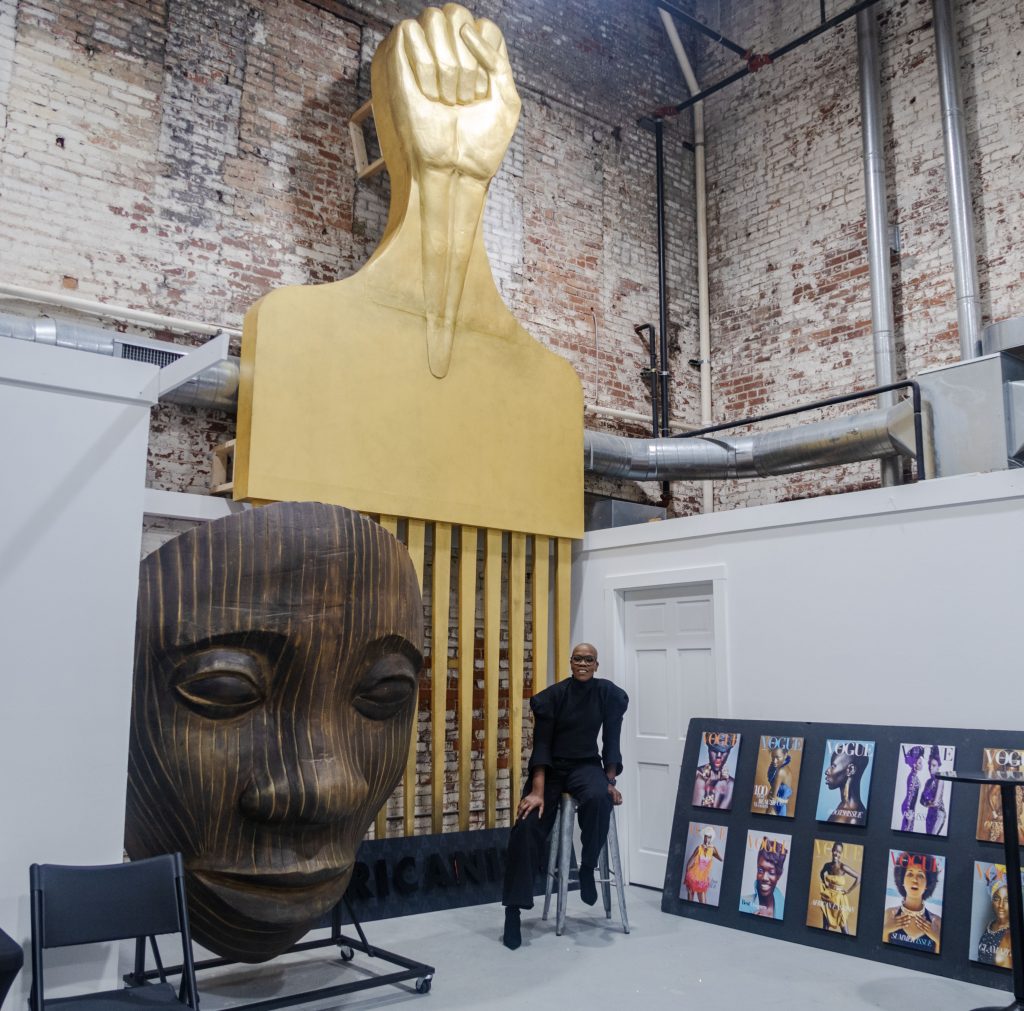
Is this what gave birth to FashionAFRICANA?
Yes, through my volunteering days in New York and in Pittsburgh. There was one show I went to called African Mosaic. That show blew me away. It was an annual show that celebrated the influence of African culture. It was 1997. I remember I saw all of these beautiful Black models hitting the stage and all of these African looks and I was like, “Oh, my God, I have to do something like this in Pittsburgh.” That was the inspiration.
A year later, I volunteered for Africa Mosaic. And then, in Pittsburgh, my friend Darnell and I co-founded Utopia, a model agency with the mission to broaden the standard of beauty.
With Utopia, we needed something to promote our talent, so that was another main reason we did the fashion show. In addition, I wanted to celebrate the beauty and diversity of the African diaspora through fashion and art. So, in 2001, we launched FashionAFRICANA at E-Fest, a street festival in East Liberty.
So, you had not yet traveled to the continent. How were you learning about African people and culture during this time?
It’s through my curiosity and my interactions with folks. A part of my volunteering days included supporting Elie Kihonia, founder of Pittsburgh’s Afrika Yetu and UMOJA African Arts Company. He was born in the Democratic Republic of Congo and teaches African music and dance. I learned a lot from Elie. He was like the first African that I met and befriended.
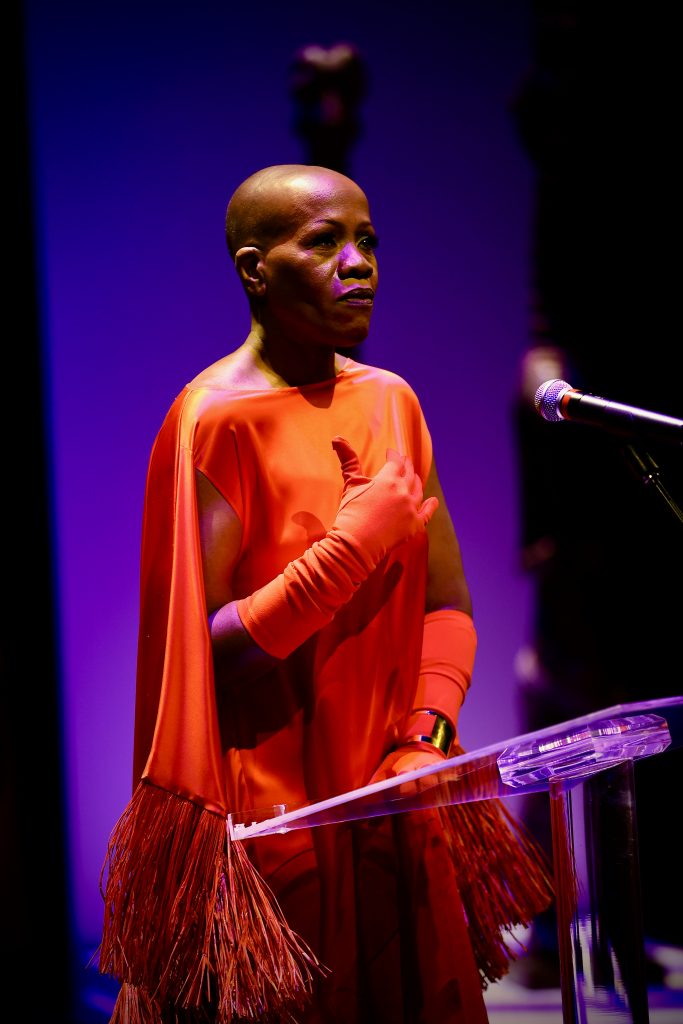
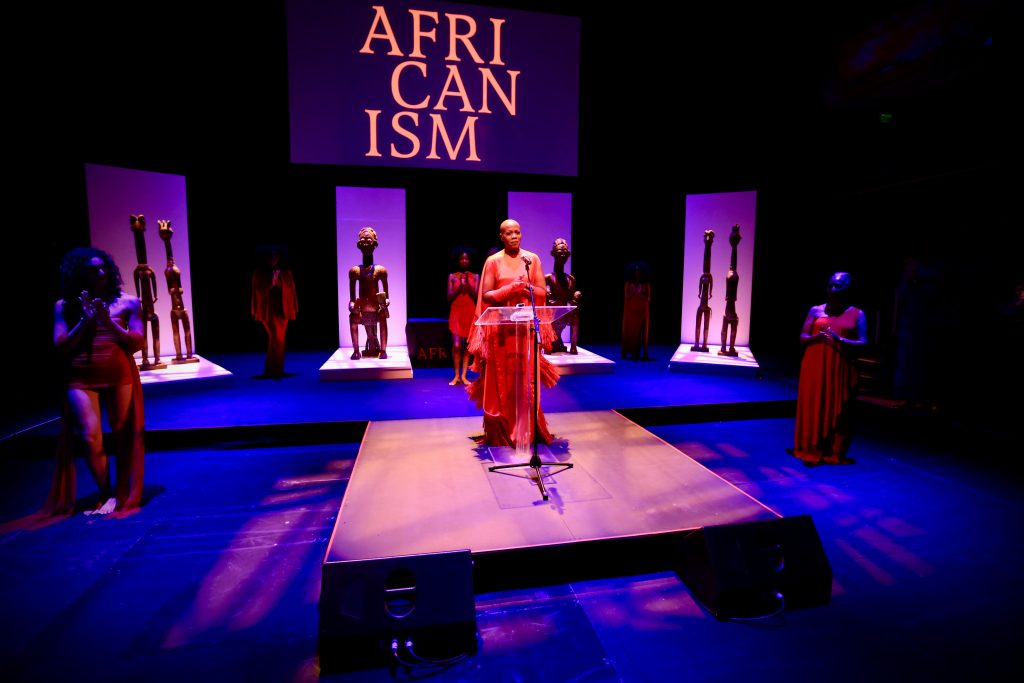
Demeatria Boccella at FashionAFRICANA’s AFRICANISM gala, Pittsburgh Public Theater, November 25, 2023. Photo Credit: Emmai Alaquiva
You just recently held AFRICANISM. How did it come about?
When we first produced FashionAFRICANA in 2001 and 2002, it was well received. The Carnegie Museum asked me to produce a show to coincide with an exhibition called Passages, a collection of photographs of different tribes throughout Africa, and it went well. Then in 2004, when the “Lost Boys of Sudan” resettled in Pittsburgh, I produced a show to highlight their journey from Africa to America and to welcome them here. This took FashionAFRICANA to the next level because Monique Greenwood, my mentor, came in as the honorary chair. For the first time, I engaged with designers and artists from other cities and countries. FashionAFRICANA grew from there. We expanded into the AFRICANA Initiative, an educational component – mentoring young people, engaging the schools, and partnering with the Bill Nunn Theatre project. With AFRICANISM, the gala, one of our goals is to support the work we do to create this bridge between Black creatives on the continent and Black creatives here in America through programming, artists residencies, and more.
Today, how do you define beauty?
Standing in your truth.
Ervin Dyer is a writer who focuses his storytelling on Africana life and culture.


